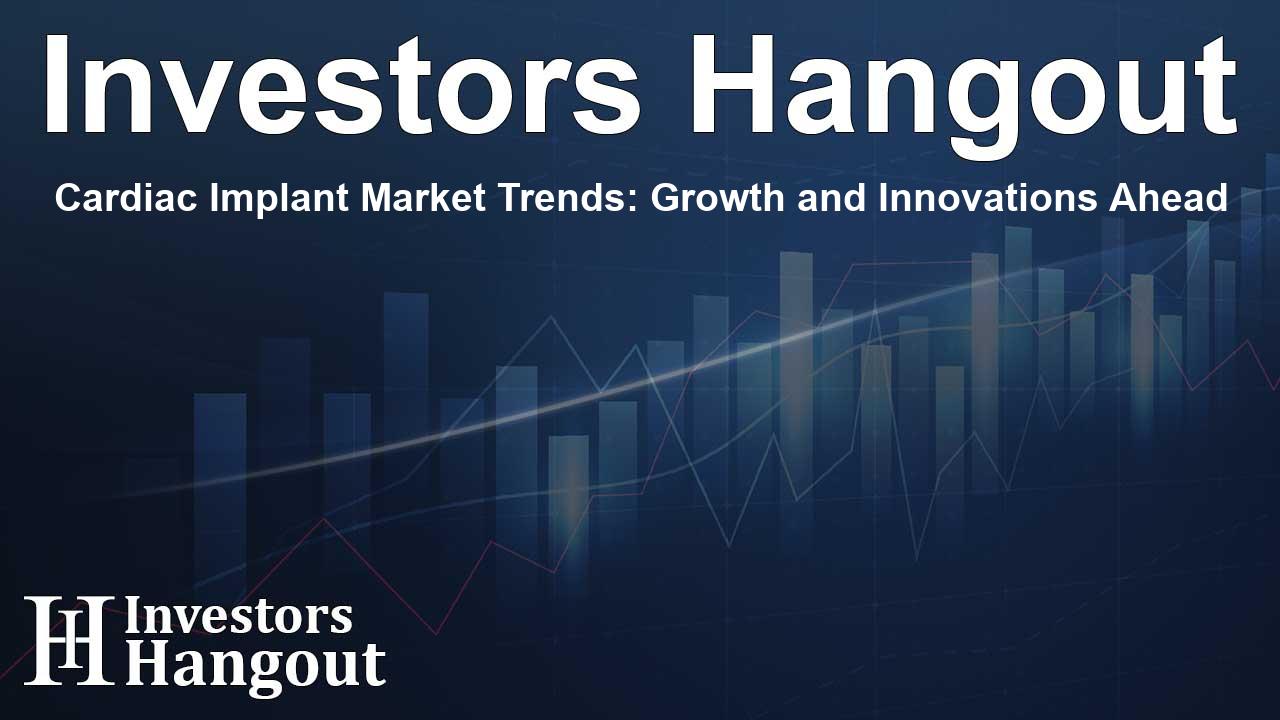Cardiac Implant Market Trends: Growth and Innovations Ahead

Cardiac Implant Market Trends and Growth Projections
The cardiac implant market is set to undergo significant expansion, with expectations to nearly double in value from USD 38.1 billion in 2023 to USD 79.2 billion by 2032. This growth translates to a remarkable compound annual growth rate (CAGR) of 8.5%, signifying a robust demand for advanced cardiac solutions.
Driving Forces Behind Market Expansion
The surge in the cardiac implants market can be attributed to multiple factors. Firstly, the rising prevalence of cardiovascular diseases (CVDs) continues to be alarming, accounting for about 32% of global deaths each year. This statistic underscores the urgent need for innovative treatment options, which boosts the demand for cardiac implants significantly.
Moreover, the aging global population plays a crucial role in increasing the incidence of heart-related issues. Medical technological advancements, including next-generation cardiac implant devices, have hastened the growth of this sector. These implants not only offer improved functionality but have also proven to be safer and more reliable than their predecessors.
Government Support and Regulatory Landscape
Government initiatives globally have been pivotal in fostering growth within the cardiac implants market. For instance, substantial investments have been made in healthcare infrastructure with a notable commitment by health authorities. Such initiatives aim to reduce cardiovascular disease mortality and promote the use of advanced treatments.
For example, in response to the increasing cardiovascular disease burden, various health organizations have been actively funding heart disease prevention programs. This financial backing is crucial for catalyzing innovation within the industry. Furthermore, regions such as Europe have enforced stringent regulations to ensure that medical devices meet high safety and performance standards, thereby fostering patient confidence.
Segmentation of the Cardiac Implants Market
By Product
The cardiac implants market can be segmented into various products, with pacemakers leading the charge. Pacemakers accounted for over 39% of the market share in 2023, thanks to their essential role in regulating heart rhythms. Advancements such as wireless and leadless pacemakers, along with MRI-compatible devices, have transformed patient care, enabling real-time health monitoring.
By Application
In terms of application, the treatment of arrhythmias is at the forefront, driven by the high prevalence of irregular heartbeats worldwide. A growing awareness regarding the risks associated with untreated arrhythmias has fostered a burgeoning demand for implantable defibrillators. Additionally, technological innovations allowing for minimally invasive implantation techniques are further enhancing market growth.
Market Dynamics Across Regions
Regionally, North America dominated the market share in 2023, holding approximately 38%. The robustness of healthcare infrastructure coupled with a high prevalence of CVDs has made the region a significant player in the market. Coupled with sustained investments in medical research, these factors have bolstered the adoption of cardiac implants.
Europe, too, remains a critical market due to rising rates of cardiovascular issues and an increasing aging demographic. Nations such as Germany and France are heavily investing in healthcare technology, ensuring that advanced cardiac implants are readily available. Additionally, the Asia-Pacific region is emerging as the fastest-growing market, driven by rising healthcare awareness, an enlarging middle class, and proactive government initiatives aimed at enhancing cardiac care.
Recent Developments and Innovations
Several key players in the market, including Medtronic, Boston Scientific, and Abbott, are continuously innovating to keep pace with the market's evolving demands. Recent product launches, such as a new leadless pacemaker from Medtronic and an AI-powered defibrillator from Boston Scientific, highlight a commitment to delivering cutting-edge technology to patients.
Moreover, FDA approvals for next-generation heart valves signify remarkable advances in the field, particularly for patients suffering from critical conditions like severe aortic stenosis. These advancements not only improve patient outcomes but also broaden the market's accessibility.
Frequently Asked Questions
What is the current market size for cardiac implants?
The cardiac implants market was valued at USD 38.1 billion in 2023.
What factors are contributing to the growth of the cardiac implants market?
Key factors include the rising prevalence of cardiovascular diseases, an aging population, and advances in medical technology.
Which segments dominate the cardiac implants market?
Pacemakers and the treatment of arrhythmias are currently leading segments in the cardiac implants market.
How significant is governmental support in this market?
Governments play a crucial role by investing in healthcare infrastructure and providing funding for heart disease prevention programs.
What recent innovations have occurred in the cardiac implants market?
Recent innovations include new leadless pacemakers and AI-powered defibrillators, enhancing treatment efficacy and patient outcomes.
About Investors Hangout
Investors Hangout is a leading online stock forum for financial discussion and learning, offering a wide range of free tools and resources. It draws in traders of all levels, who exchange market knowledge, investigate trading tactics, and keep an eye on industry developments in real time. Featuring financial articles, stock message boards, quotes, charts, company profiles, and live news updates. Through cooperative learning and a wealth of informational resources, it helps users from novices creating their first portfolios to experts honing their techniques. Join Investors Hangout today: https://investorshangout.com/
Disclaimer: The content of this article is solely for general informational purposes only; it does not represent legal, financial, or investment advice. Investors Hangout does not offer financial advice; the author is not a licensed financial advisor. Consult a qualified advisor before making any financial or investment decisions based on this article. The author's interpretation of publicly available data shapes the opinions presented here; as a result, they should not be taken as advice to purchase, sell, or hold any securities mentioned or any other investments. The author does not guarantee the accuracy, completeness, or timeliness of any material, providing it "as is." Information and market conditions may change; past performance is not indicative of future outcomes. If any of the material offered here is inaccurate, please contact us for corrections.